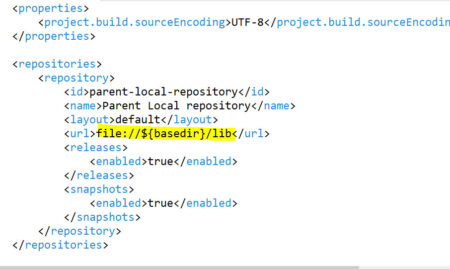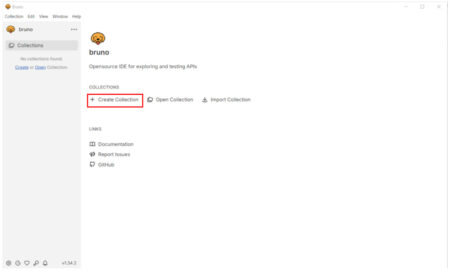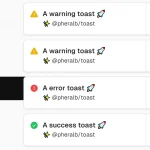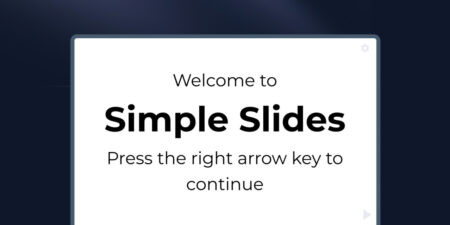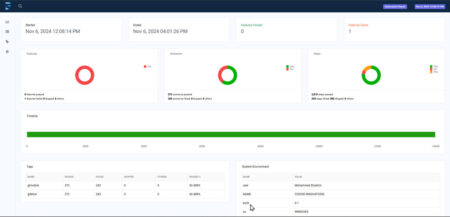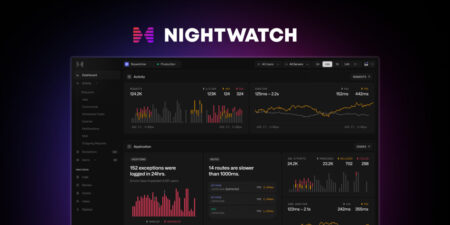PHPStan just released v2.0.0 this week! This massive update is three years in the making, consisting of over 180 items…
Libraries & Frameworks
In our web-application(built on Bootstrap and Angular), certain tabs in the navbar are displayed only to particular users. Certain input boxes/ buttons are enabled only to certain users. I want to write test scripts using Selenium/ Sikuli to test this functionality and I want your suggestions in this approach.
One of the ideas is to navigate to different pages in the UI, and use Selenium’s isDisplayed() and isEnabled() functions and make assertions. And capture screenshots accordingly?
The other idea is to use Sikuli and match certain submenus being present on hover, capture screenshots and compare with the expected.
Which approach do you guys think is the better one to use? Also, please suggest if there’s another way to do it.
Would also be so glad if you guys can provide me a generic method to test this.
I am a beginner in Appium automation. The application I am testing, have this scenario where I need to tap on Search button from the native keyboard. I have tried with pressKeyCode method but getting this error-
The method pressKeyCode(int) is undefined for the type WebElement
I am using the following Environment-
Appium 1.4.16.1 with Java client 5.0.0-BETA8
Selenium 3.4.0
I don’t know what I am doing wrong? I have tried with earlier Java client for appium as well but nothing has worked so far. Also, is there any workaround other than the pressKeyCode to do this?
I can’t find my XPath so that I can’t run the code. Can anyone solve this issue?
I have to do mouse hover manage content then click on content Library:
package TestNG;
import org.testng.annotations.Test;
import java.util.concurrent.TimeUnit;
import org.openqa.selenium.By;
import org.openqa.selenium.WebDriver;
import org.openqa.selenium.WebElement;
import org.openqa.selenium.chrome.ChromeDriver;
import org.openqa.selenium.interactions.Actions;
import org.openqa.selenium.support.ui.ExpectedConditions;
import org.openqa.selenium.support.ui.WebDriverWait;
import org.testng.annotations.BeforeTest;
public class MuviOTT {
public WebDriver driver;
static WebElement element;
//@Test
public void FreeTrail() throws Exception {
driver.findElement(By.xpath(“//button[@type=’submit’]”)).click();
driver.findElement(By.id(“name”)).sendKeys(“subhankar jena”);
Thread.sleep(5000);
// driver.findElement(By.id(“companyname”)).sendKeys(“itworld”);
driver.findElement(By.name(“phone”)).sendKeys(“7684914257”);
driver.findElement(By.id(“email”)).sendKeys(“xyz143@gmail.com”);
driver.findElement(By.id(“inputPassword”)).sendKeys(“Bbsr@2021”);
// driver.findElement(By.id(“subdomain”)).sendKeys(“iddomain”);
driver.findElement(By.id(“terms_check”)).click();
driver.findElement(By.id(“nextbtn”)).click();
}
@Test
public void f() {
}
@BeforeTest
public void openURL() throws Exception{
System.setProperty(“webdriver.chrome.driver”, “F:\Library\chromedriver.exe”);
driver = new ChromeDriver();
// Opening the Browser and Entering the URL
driver.get(“https://www.muvi.com/”);
// Maximize the Browser window
driver.manage().window().maximize();
//driver.manage().timeouts().implicitlyWait(2, TimeUnit.SECONDS);
Thread.sleep(1000);
driver.findElement(By.id(“load_login”)).click();
driver.findElement(By.id(“LoginForm_email”)).sendKeys(“subhankarjena14@gmail.com”);
driver.findElement(By.id(“LoginForm_password”)).sendKeys(“Gulu@123”);
driver.findElement(By.id(“btn-login”)).click();
Actions action = new Actions(driver);
// Mouse Hover actions on an element using Action Class:
action.moveToElement(driver.findElement(By.xpath(“//em[@class=’icon-film left-icon’]”))).perform();
WebDriverWait wait = new WebDriverWait(driver, 10);
element= wait.until(ExpectedConditions.elementToBeClickable(By.id(“//a[contains(.,’Content Library’)]”)));
driver.findElement(By.xpath(“//a[contains(text(),’Content Library’)]”)).click();
}
}
I want to include one .jar file which has classes of my core automation framework. I created a “lib” folder in my selenium project and then gave its path in the pom.xml dependency. This Jar file of framework is not a runnable jar. I exported the framework project as a jar and want to use its classes in my project.
However, im not able to use any class/method from that jar(framework) in my test scripts. Am i doing something wrong.
This blog discusses how AI-driven retail inventory management reshapes the industry by automating processes, enhancing data accuracy, and enabling real-time decision-making. With AI, retailers can forecast demand, streamline warehouse operations, and optimize stock levels, leading to cost savings and improved customer satisfaction. However, data quality, implementation costs, and system compatibility can impede integration.
The post AI-Powered Inventory Management: A Retailer’s Must-Have first appeared on TestingXperts.
In our connected world, APIs are important for many applications. They allow simple websites and complex systems to work well. To make sure our applications are strong and reliable, we need to test these APIs properly, including services like OpenCage. This ensures they function correctly. This is where Bruno comes in! Whether you want to
The post Comprehensive Bruno Tutorial for API Testing appeared first on Codoid.
@pheralb/toast is a lightweight, accessible, and customizable toast component library built with TypeScript for React applications. It is perfect for…
Join us as Stephen Rees-Carter delves into Laravel security, discussing security consulting, the importance of penetration testing, and common vulnerabilities…
The blog discusses how Natural Language Processing (NLP) transforms insurance fraud detection by analyzing vast amounts of text data to identify fraudulent patterns and anomalies. Techniques like entity recognition and sentiment analysis enable insurers to detect inconsistencies in claim submissions, enhancing fraud prevention accuracy and efficiency. NLP automates data extraction, reduces manual effort, and triggers real-time alerts, enabling timely responses to fraud.
The post The Role of NLP in Insurance Fraud Detection and Prevention first appeared on TestingXperts.
The topic of artificial intelligence (AI) and the idea of AI has become very popular in recent years. Machines now behave like people and can sometimes think better than us, especially when it comes to driverless cars. This technology is no longer just in stories or movies. It is part of our daily lives, affects
The post The Benefits and Risks of AI appeared first on Codoid.
Implement performant snow animations in React Native. Custom snowflakes, flexible controls, and easy integration. The post Create Custom Snow Effects…
If you’ve been a developer long enough, you’ve encountered the excitement of cloning a new repository only to be quickly…
Measure performance across jobs and services Source: Read MoreÂ
Simple Slides is a responsive and text-first presentation tool that engages your audience. It is built with Laravel, Vue, and…
This blog explains why compliance testing is important in eLearning. It shows how compliance testing makes sure your eLearning courses follow industry standards. This testing is essential for a good learning experience for all learners. We will cover the testing process, key tools, and best practices. These points will help you understand more about compliance
The post Compliance Testing in eLearning appeared first on Codoid.
As Vue.js applications scale up, component interaction management and dynamic styling can become progressively more difficult. The new defineExpose feature…
In today’s world of finance, mobile applications for test trading software are essential tools for users who need quick access to real-time data and market analysis within a reliable Electronic trading platform, including algorithmic trading capabilities, alongside vast amounts of data for portfolio management tools. As more investors, traders, and researchers rely on these apps
The post Comprehensive Strategies to Test Trading Software appeared first on Codoid.
Laracon AU has begun and with it comes exciting news from Taylor and the rest of the Laravel team. Announcing…
The blog discusses the critical role of quality assurance (QA) in migrating to the ISO 20022 standard, which is essential for modernizing global financial messaging. With enhanced data quality, interoperability, and compliance, ISO 20022 improves cross-border payment processing. Tx offers customized QA solutions, including functional testing, data validation, risk assessment, and security audits, to ensure a seamless, compliant transition for financial institutions.
The post Role of QA in the Ramification of ISO 20022 Transformation first appeared on TestingXperts.

